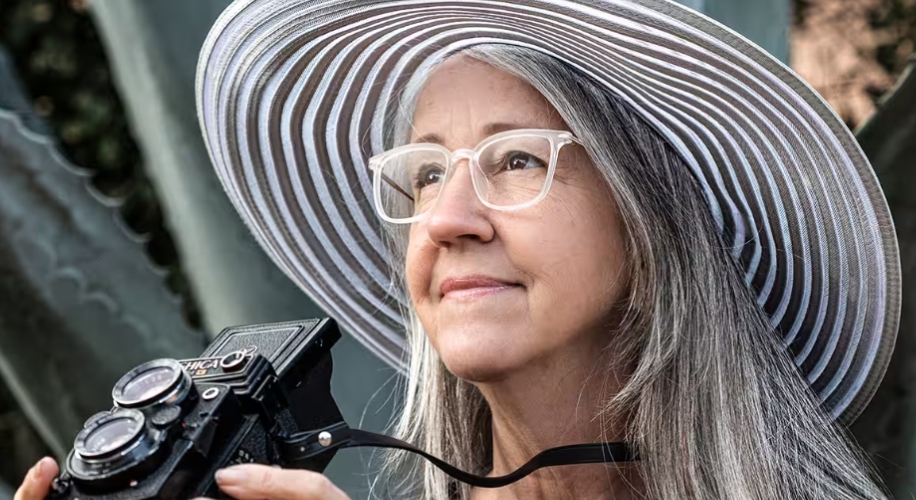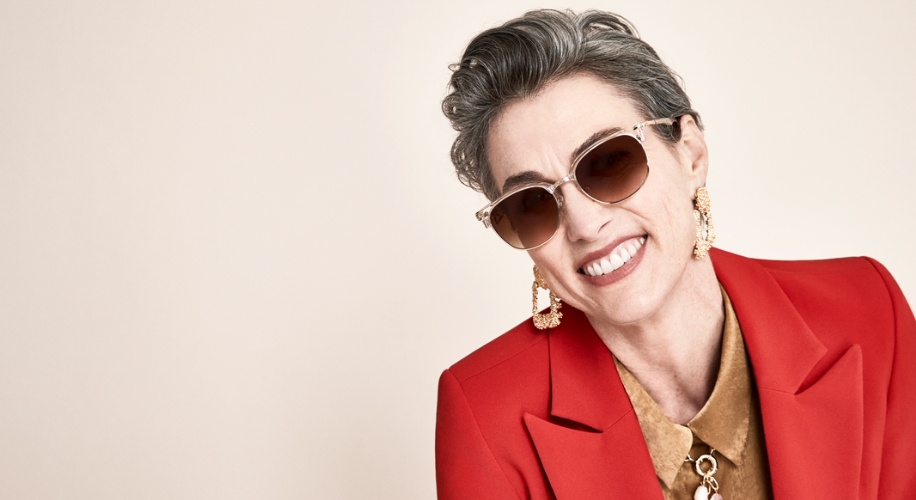A Clear View: Navigating the World of Progressive Lenses
- BY Dr. Sophia Moh
- IN Lenses

Progressive lenses offer a smooth transition from distance to near vision, while eliminating the age-old bifocal lines that can age us and our looks. This seamless solution in vision correction caters to those who require multiple prescriptions. Understanding how progressive lenses work is key to adapting to them quickly and enjoying the benefits they bring to everyday life.
Shop Frame
Understanding Progressive Lenses
Unlike traditional bifocals or trifocals, progressive lenses provide a gradient of varying lens powers, which assist the eye in focusing on objects at all distances. This feature makes them ideal for individuals experiencing presbyopia, a condition common in adults over 40, where the eyes struggle to focus on nearby objects. Here’s how these modern marvels work:
- Top of the Lens: Designed for viewing objects at a distance. Whether you’re driving or catching a movie, this area provides clear sight for faraway points.
- Mid-Section: Gradually changes in power, it’s perfect for intermediate distances, such as looking at your computer screen or someone sitting across the table.
- Bottom Area: Tailored for reading and close-up tasks, this segment of the lens allows for sharp vision at a short range.
By gently moving your head and eyes through the different lens areas, you can focus on objects at varying distances without the need to switch between different pairs of glasses.
Shop Frame
Selecting the Right Progressive Lens
When it comes to choosing the right frames and lenses, personalization is key. Several factors affect the selection process, including your prescription, lifestyle, and frame choice. Here are a few tips to guide you:
- Comprehensive Eye Exam: Start with an up-to-date eye exam to ensure your prescription is current. This will lay the foundation for your progressive lenses.
- Lifestyle Assessment: Your daily activities play a crucial role in determining the type of progressive lens you need. Share your routine with your eye care professional to find a lens that matches your lifestyle.
- Frame Fit: Progressive lenses require a precise fit in your frames to perform optimally. Certain frame shapes and sizes can affect the performance of your progressive lenses, so choosing the right frame is crucial.
- Adaptation Period: Give yourself time to adjust to your new lenses. While some may adapt quickly, others may need a few weeks to feel comfortable with the transition between lens powers.
Remember, not all progressive lenses are made equal. Advanced lens designs and coatings can enhance your visual experience, so consider investing in high-quality progressive eyewear that incorporates the latest technology.
Shop Frame
Adapting to Progressive Lenses
Moving to progressive lenses can be a big change, especially if you’re transitioning from single-vision lenses or bifocals. However, with a few simple tips, you can make the adjustment period smoother:
- Wear Them Consistently: To get used to your new progressives, wear them as much as possible. The more you wear them, the quicker your brain will adapt to the new way of seeing.
- Point Your Nose: When looking at something, point your nose towards the object. This ensures you’re looking through the correct part of the lens.
- Practice Makes Perfect: Spend time each day focusing on objects at different distances to help your eyes adjust to the lens gradient.
If you ever feel overwhelmed, remember that patience is key. Don’t hesitate to reach out to your eye care provider for assistance or if you think adjustments are needed for your glasses.
At Zenni Optical, we are here to help you navigate the world of progressive lenses with ease. Our selection of affordable, high-quality eyewear is designed to provide you with the best visual experience. Start your journey towards clearer vision today, and let us guide you every step of the way.
About the Author: Dr. Sophia Moh, OD, ABOC
Dr. Sophia Moh, OD, is an optometrist based in the Bay Area, California. She holds a doctorate from UC Berkeley School of Optometry and has worked in various eye care settings, including primary care optometry, general ophthalmology, community health clinics, and Veterans Affairs. Dr. Moh is dedicated to improving global vision health by making high-quality, affordable eyewear accessible to all. She is also a certified American Board Optician (ABO) and actively contributes to optical education through training and lectures.



